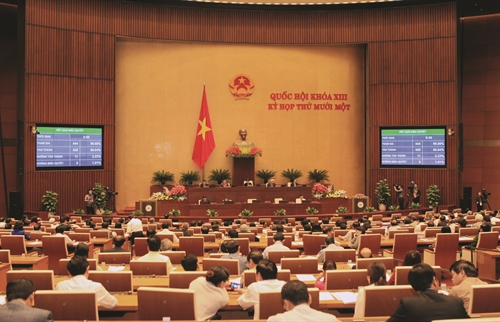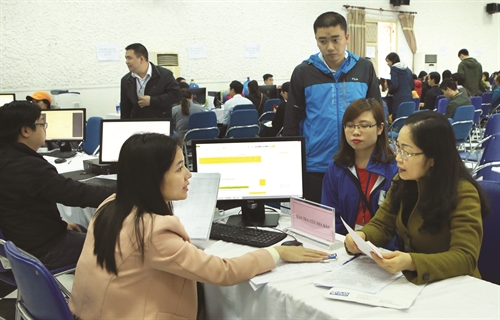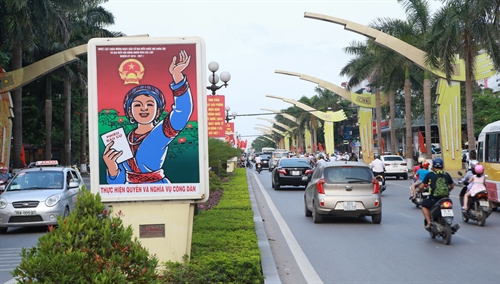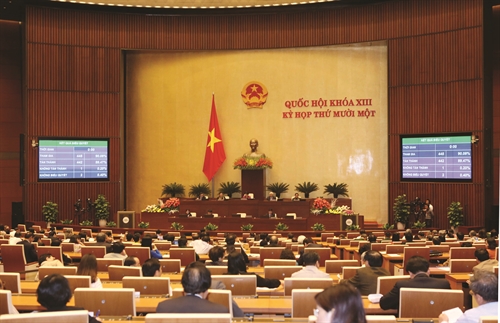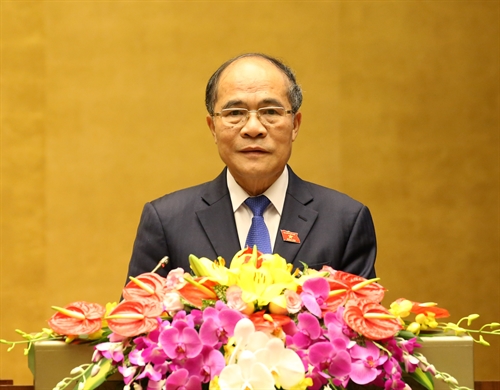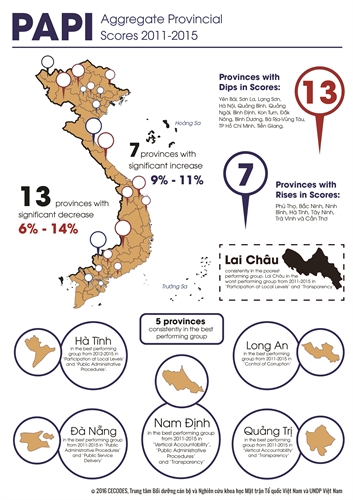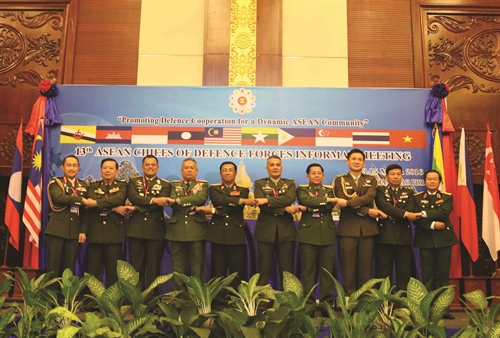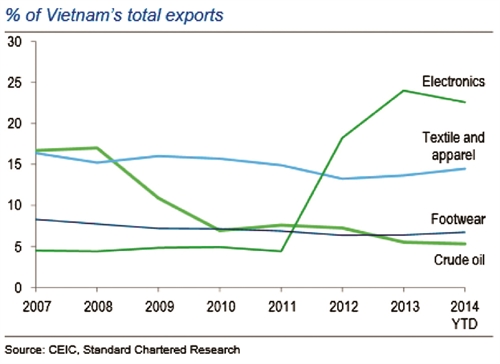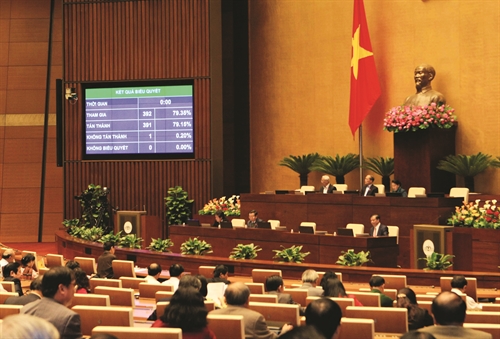Luu Binh Nhuong, LL.D
Central Steering Committee for Judicial Reform
Judicial support and its role
Judicial support is defined in the Party’s official documents as covering activities of lawyers, judicial assessors, notaries, judicial support police, and bailiffs[1]. Lawyers are engaged in legal proceedings, give legal advice, act as extra-procedural representatives of clients and provide other legal services[2]. Judicial assessors employ scientific, technical and professional knowledge, facilities and measures to give professional conclusions on issues related to investigation, prosecution, adjudication, execution of criminal judgments or settlement of civil cases and matters and administrative cases as requested by procedure-conducting agencies or persons or assessment requesters[3]. Judicial support police is tasked to escort inmates and protect court hearings, etc. Notaries certify the authenticity and lawfulness of contracts and other transaction documents as required by law or voluntarily requested by organizations or individuals[4]. Bailiffs perform tasks related to enforcement of civil judgments, service of papers, and making of written evidence, in addition to other tasks prescribed by law[5].
Judicial support activities are all related to judicial activities (investigation, prosecution, adjudication and judgment enforcement), with adjudication by the court as the central activity. Judicial support activities are carried out not only by state agencies or civil servants or public employees but also by judicial title holders (e.g., lawyers, bailiffs, notaries public, assessors, arbitrators and conciliators) as prescribed by law or recognized by competent state agencies. Judicial support officers may not be civil servants or public employees but have law-prescribed powers and their work is guaranteed by the State and law. Therefore, their acts can cause certain legal consequences and have legal validity toward other persons, the State and society. It can also be said that these officers are entrusted with the state power to help the State perform certain judicial support tasks. Judicial support activities complement the judicial system and judicial activities, not thus restricted to the court system. These activities are managed and directed by the State in accordance with law.
Party policy and State law on judicial support
In order to successfully carry out the judicial reform, the Party has identified many important tasks, including:
* Renewing the organization and operation of people’s procuracies and investigation, judgment enforcement and judicial support bodies[6];
* Consolidating and strengthening judicial support bodies; renovating the state management of lawyers’ activities, legal counseling and judicial assessment in line with the socialization policy; training lawyers who possess ethical qualities and professional qualifications so that they can bring into play their role in legal counseling and proceedings; providing legal counseling for agencies, organizations and people, and pro bono legal aid for the poor; simplifying notarization procedures; and strengthening judicial assessment bodies to effectively support investigation, prosecution and adjudication work; and soon establishing a national forensic examination institute[7].
Particularly, under Resolution No. 49-NQ/TW dated June 2, 2005, on the judicial reform strategy through 2020, the Party set the task of promoting the aggregate strength of the entire society in the judicial reform process. In performing this task, judicial bodies and judicial support bodies must be placed under the supervision of popularly elected bodies and people. These bodies should be organized in a rational, scientific and modern manner, with courts holding the central position and adjudication being regarded as the key task.
The Resolution states judicial support activities should be vigorously socialized while judicial and judicial support officers should enjoy higher legal powers as well as bear higher legal responsibilities and fully satisfy political, professional and experience criteria as required.
It says a contingent of lawyers should be trained and developed to be sufficient quantity and possess political and ethical qualities and professional qualifications. Relevant mechanisms should be improved to help lawyers properly engage in the adversarial process at court hearings.
Other tasks specified in the Resolution include completing judicial assessment institutions; building a regular judicial support police force meeting the requirements of adjudication and judgment enforcement activities; improving notarization law and step by step socializing this service; and organizing the bailiff service on a pilot basis in some localities.
In that spirit, the Resolution of the XIth National Party Congress urges further renewal and consolidation of judicial support institutions[8], demonstrating the Party’s clear and consistent viewpoint and policy on judicial support over the past years since 2002: A clear, strong, modern, synchronous and advanced judicial system cannot exist without judicial support institutions and officers.
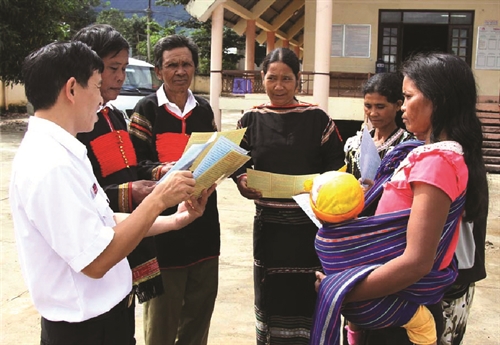 |
| Dak Lak province’s Justice Department officers help people in Cu Pui commune, Krong Bong district, study legal documents __Photo: Pham Cuong/VNA |
Reality of judicial support work
Over the past years, the State has institutionalized the Party’s viewpoints and policies on judicial support. Many important legal documents on judicial support have been enacted[9]. Judicial support agencies and organizations and officers have been strengthened, making significant contributions to judicial reform, administrative reform and guarantee of human rights and lawful rights and interests of agencies and organizations and individuals.
At present, Vietnam has 9,755 lawyers[10] and over 4,000 legal apprentices, and 3,422 law practicing organizations. Some large professional law firms have been formed[11]. However, the capacity and qualifications of lawyers are uneven; excellent lawyers are few, especially those who can engage in international judicial activities and have adversarial skills.
The country’s current judicial assessment system consists of four central judicial assessment organizations[12], five regional forensic psychiatry centers, 56 provincial forensic psychiatry centers, and 63 criminal technology divisions under provincial-level Public Security Departments. The State has appointed 4,855 judicial assessors, including 967 working on an adhoc basis. Generally speaking, the physical and technical bases of these judicial assessment facilities remain obsolete and inadequate. Hi-tech assessment organizations in sophisticated areas like construction and information technology are yet to be established. The current number of judicial assessors is still insufficient.
By mid-2015, the country had 1,874 notaries public and 876 notarization practicing organizations. However, notarization activities still see problems and potential risks. In practice, notarization, certification and bailiff service are not clearly distinguished and separated.
Across the country there are 572 legal aid officers working in 63 legal aid centers with 199 branches. Legal aid activities have not been much renovated and, thus, recorded still limited results.
By April 2015, Vietnam had 11 arbitration centers with 342 arbitrators, which had only heard 849 cases from 2011 to 2015, an average of 170 cases a year. The country also had 253 professional auction organizations with 1,200 auctioneers. Auction activities remain underdeveloped, while most auctioneers lack professional skills.
The bailiff service has been officially recognized after a period of pilot implementation. Private detective services do exist in reality[13] but have not yet received adequate official attention. Extrajudicial conciliation activities have not yet been really developed to effectively support litigation activities.
 |
| People in Phong Du commune, Tien Yen district, Quang Ninh province, are provided with information about the Law on Lawyers __Photo: Nhandanonline |
Increased role of judicial support in the new context
In the context that courts are constitutionally affirmed to be adjudication bodies exercising judicial powers and having a central position, the position and role of judicial support in the new situation can be outlined below.
In terms of inputs, judicial support includes law-prescribed activities to provide evidence, justifications and grounds for the courts to have additional bases for evaluating the legal nature of cases, matters or acts of agencies, organizations or individuals so as to render lawful and reasonable rulings. Based on their functions, duties and professional capacity, lawyers, judicial assessors, notaries public and bailiffs carry out their specific activities to help the courts operate more judiciously and effectively or relieve their workload through alternative methods such as conciliation and arbitration.
In terms of outputs, judicial support functions to enforce the courts’ verdicts to materialize justice. Verification, enforcement of court judgments and rulings, and asset auction will contribute to guaranteeing the rights and interests of related agencies, organizations and individuals.
In terms of operational process, judicial support helps the litigation machinery operate synchronously and effectively while partly supervising the operation of the courts as well as judicial activities of other agencies and organizations.
It should be noted that on one hand, no agencies and organizations are equal to the courts in exercising judicial powers, particularly the adjudication power. On the other hand, judicial support and other bodies, when engaged in judicial activities, are not required to submit to the courts as their supreme superior; they simply perform their law-prescribed functions and tasks for the common goal of the State and society. Judicial and judicial support activities are now carried out under the viewpoint that the state power is unified with assignment of tasks to and coordination of state agencies in exercising legislative, executive and judicial powers. It means that in both theory and practice these powers are explicitly distinguished but not segregated; they are regarded as integral parts of the state power.
Vietnam’s wide and deep international integration also poses a requirement for elevating the position and role of judicial and judicial support activities in guaranteeing justice, human rights, citizens’ rights, democracy, equality, and trust of the society.
Hence, the following solutions should be implemented in the coming time to raise awareness about the position and role of judicial support activities and increase their effectiveness:
First, it is necessary to raise awareness about the position and role of judicial support while providing judicial support agencies, organizations and officers with adequate knowledge and stuff to properly exercise the right to supervise judicial activities and bodies.
Second, judicial support institutions should be improved, attaching importance to completing laws and regulations on legal aid, notarization, judicial assessment, judicial records, state compensation, asset auction, negotiation, conciliation, and arbitration. Laws on bailiffs, judicial police and evidence should be elaborated. More specific regulations on judicial assessment and interpretation processes serving investigation, prosecution, adjudication and judgment enforcement need to be issued. Regulations on private detectives and private prosecution should be mulled and issued to create conditions for organizations and individuals to collect and verify evidence serving court and arbitral proceedings. Mediation organizations, non-governmental arbitration bodies and bailiff service organizations ought to be strongly developed. The functions, duties, powers and responsibilities of judicial support organizations and officers need to be clearly defined in all litigation activities from investigation, prosecution, adjudication to judgment enforcement.
Third, judicial support officers should be adequately trained in knowledge, attitude and skills. Their foreign language, information technology and soft skills should be improved so that they can meet international integration requirements[14]. Qualified legal training institutions should be allowed to provide college-level training in negotiation, conciliation, arbitration, legal counseling disciplines in order to supply judicial support professionals for the society, especially for the resolution of disputes related to the ASEAN Community and TPP agreement.
Fourth, judicial support activities should be transparentized, purified and socialized through subjecting them to the supervision by Party agencies and popularly elected agencies, especially the National Assembly’s Judicial Committee, and the media. Evaluation and confidence voting mechanisms should be applied to courts, procuracies, and investigation, judgment enforcement and judicial support bodies. Anti-corruption measures should be taken in judicial support activities, such defense and judicial assessment.
Fifth, the state management of judicial support activities should be enhanced, ensuring the Government’s unified management of these activities and heightening the advisory role of the Ministry of Justice. Judicial support agencies and organizations may enjoy autonomy and self-governance in accordance with law but must submit to the direction and supervision by the Government and Ministry of Justice.
Last but not least, it is necessary to build a mechanism for coordination and cross-check between judicial support agencies and organizations and the court, procuracy, investigation and judgment enforcement sectors. In judicial proceedings, the court has the sole and supreme power to issues injunctions, rulings and judgments, while procuracy, investigation, judgment enforcement and judicial support bodies are responsible for exercising their powers and fulfilling their obligations to help the courts effectively enforce judicial powers. However, these bodies also have the right to directly or indirectly supervise the courts’ exercise of these powers in accordance with law.-
